
1 Peter 2:13-18 Bible Teaching
Peter and Shawn emphasize virtuous living, submission to authorities, and aligning actions with divine principles. Disobedience is justified if human laws conflict with God's will.

Peter and Shawn emphasize virtuous living, submission to authorities, and aligning actions with divine principles. Disobedience is justified if human laws conflict with God's will.

The New Testament Church began at Pentecost, marked by the Holy Spirit's filling, emphasizing a spiritual foundation over physical institutions. Early Christians focused on spiritual devotion post-70 AD. Terms like Hebrew, Israelite, and Jew have distinct meanings but are used interchangeably in the New Testament. Pentecost saw diverse Jews hear the Gospel in their languages, spreading Christianity globally. Regions like Cappadocia and Egypt played key roles in early Christianity's spread, highlighting the Gospel's universal reach.

Pentecost: Holy Spirit fills apostles, enabling diverse tongues, symbolizing divine unity. Contrasts Babel's confusion. Discusses spiritual gifts' relevance, glossolalia vs. xenolalia.

Shawn teaches predestination based on God's foreknowledge, emphasizing believers as a "chosen generation" and "royal priesthood," highlighting spiritual identity and mission.

Jesus as "living stone" and "chief cornerstone" unites believers, forming a spiritual house. Believers, as spiritual priests, offer non-material sacrifices, embodying love and service.

Acts 2: Pentecost, Holy Spirit descends, apostles speak in tongues. Symbolism: wind, fire. Aligns with Jewish festivals. Emphasizes free will, spiritual rebirth.

Peter's teaching uses "if/then" to stress spiritual growth, shedding sinful ways, embracing virtues, and nurturing faith through foundational scripture, "Milk of the Word."

Attending church for God's Word is vital. Biblical apostles were unique, foundational witnesses of Christ. Modern apostles aren't needed; spiritual discernment is key.

Peter emphasizes agapao love, spiritual rebirth from God's Word, and contrasts human life's temporality with God's eternal Word. Shawn highlights Logos as Jesus, God's creative power, and believers' transformation through Christ.

Peter's address to 120 disciples highlights communal decision-making in selecting Matthias as the twelfth apostle, reflecting early church practices and emphasizing shared responsibility.
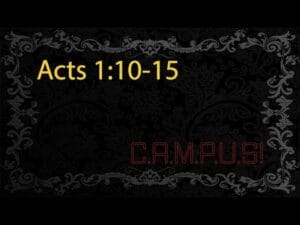
Shawn's teaching on Acts 1:10-11 emphasizes Jesus's ascension, the apostles' focus on the Kingdom, and the angels' encouragement. It stresses active Christian living, hope in Jesus's return, and the significance of Jesus's worship. The upper room symbolizes early Christian unity, with Peter's leadership pivotal in spreading the Gospel.
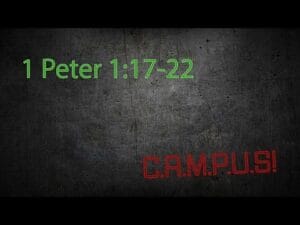
Peter and Shawn teach believers to live in holiness, emphasizing God's impartial judgment based on deeds, redemption through Christ, and sincere love and unity among believers.
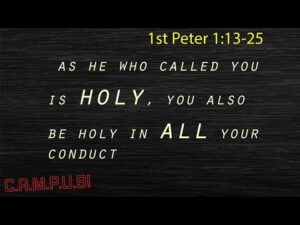
Peter and Shawn stress mental readiness, holiness, and spiritual growth. Believers should prepare for Christ's return, live in faith, and mature from grace to obedience.

Shawn's teaching highlights Jesus' spiritual kingdom, the role of the Holy Spirit, selfless service, and spiritual over earthly priorities, emphasizing faith and love.
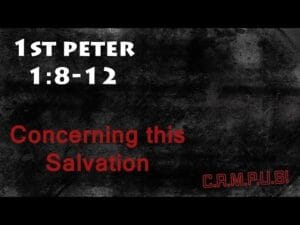
Believers love Jesus without seeing Him, showing faith through mutual love. Faith brings joy beyond evidence, fulfilling prophecies, intriguing even angels.

Acts, by Luke, focuses on Peter and Paul, documenting early church growth and the spread of the Gospel. It connects Judaism to Christianity, emphasizing the Holy Spirit's role.

Believers receive new birth and eternal hope through Jesus' resurrection, promising an incorruptible inheritance in heaven. Faith is tested for spiritual growth, ensuring salvation.

Teaching emphasizes Jesus' life as spiritual lessons, urging believers to embrace spiritual growth, sacrifice, and faith, with Jesus as the cornerstone, glorifying God through personal transformation and following His divine purpose.

Teaching on John 21: Jesus' third post-resurrection appearance, miraculous fish catch, Peter's restoration, emphasis on love, faith, leadership, and spiritual nourishment.
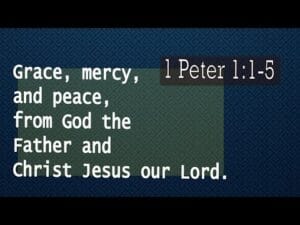
Shawn's teaching highlights scriptural distinctions between God the Father and Jesus, emphasizing binitarianism, where the Holy Spirit is not a distinct person, contrasting with trinitarianism.